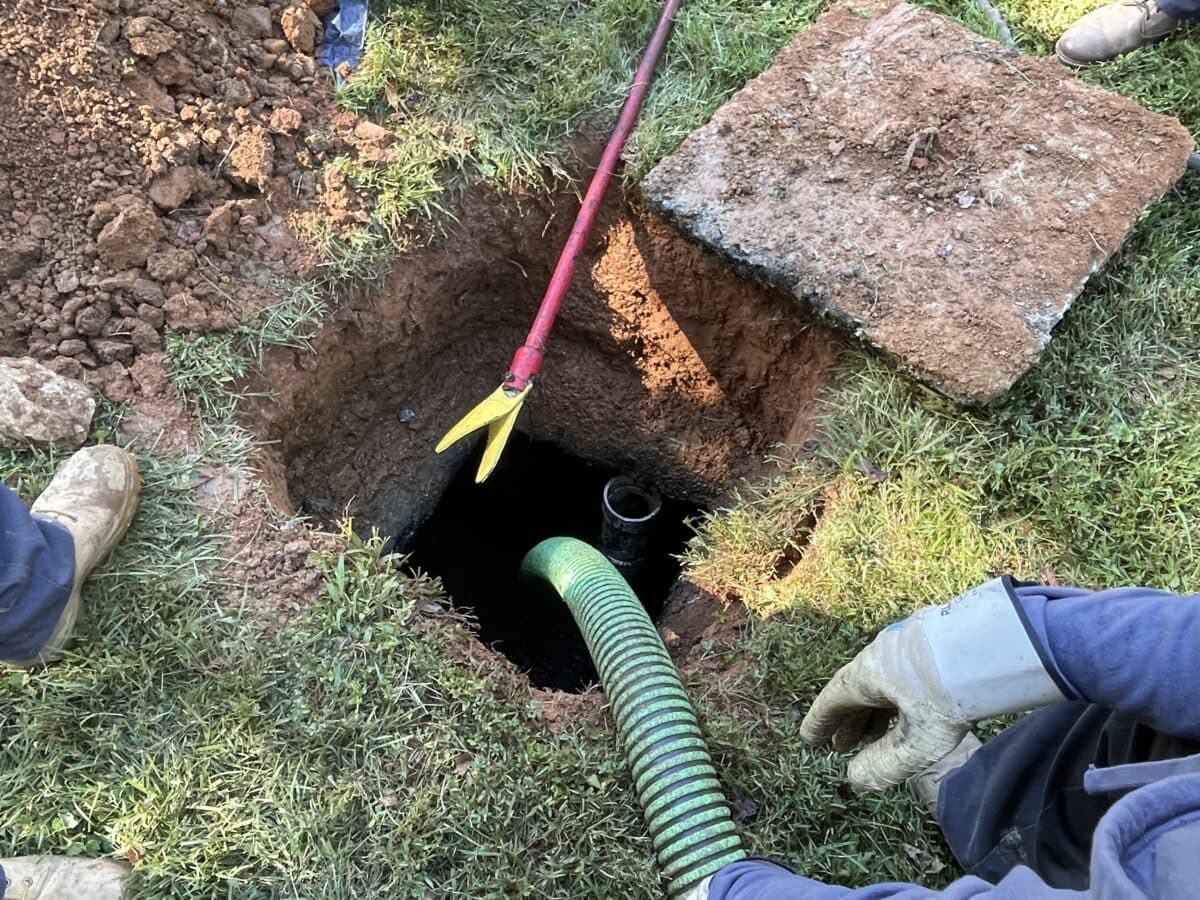
What Is The Septic Tank Cleaning Process?
If you’re a homeowner or business owner with a septic system, ensuring its proper maintenance is crucial for avoiding costly repairs and environmental hazards. Regular septic pumping and hauling are essential components of this maintenance. But what exactly is the process of septic tank cleaning service, and why should you ensure your company is properly licensed.
Understanding Septic Tank Cleaning
A septic service company, also known as septic pumping or septic tank cleaning, removes both the solids and the liquid from your septic tank. Over time, solid waste accumulates at the bottom of the tank, while lighter materials like grease and scum float to the top. Without regular pumping, these materials can build up and lead to blockages, backups, and even system failure.
The Process
When you hire a licensed professional septic company, here’s what you can expect:
- Schedule: The interval between pumping can be based on several different factors. Usage, sludge and grease accumulation and regulatory requirements all come into consideration. Ordinarily, the more people in your home, the more frequently the tank needs pumping out. However, heavy use of grease, shower gels, shampoo and food waste can decrease the time between pumpouts. A typical rule of thumb is once every three years with five years as a maximum. Some regulations require pump out at certain intervals regardless of need.
- Utilities: Your septic company must call a Miss Utility ticket to clear or mark all underground utilities prior to digging on your property. This takes 2 full work days to clear. If there is an emergency, clearance can be obtained in a few hours, but there has to be sewage on the ground, backing up into the house or an imminent threat of that occurring before a regular ticket would clear.
- Assessment: The process typically begins with an assessment of your septic tank’s condition. Licensed technicians will inspect the tank, check for any signs of damage or leaks, and make sure it’s safe to pump the tank.
- Preparation: Before pumping begins, the area around the septic tank needs to be cleared and accessible. This may involve moving obstacles or vegetation that could hinder the technician’s work.
- Pumping: Using specialized equipment, such as vacuum trucks, the technician will pump out the contents of the septic tank. This includes removing both solid waste and liquid effluent.
- Inspection: Once pumping is complete, the technician may conduct a visual inspection of the tank and its components to check for any signs of damage or wear. This allows for early detection of potential issues that may require repair or maintenance.
- Filter: Most newer septic tanks have an effluent screen or filter that needs to be cleaned at the same time. Some filters need to be cleaned in between pumpouts, ask your company about an annual filter cleaning and tank inspection. If your tank doesn’t have a filter, ask your company for a proposal to have one installed.
- Disposal: The waste collected during pumping is transported to a designated disposal site for proper treatment and disposal. Licensed septic companies ensure that waste is disposed of in compliance with all regulations.
- Recommendations: After the service is complete, the technician may provide recommendations for ongoing maintenance, such as scheduling regular inspections and pump-outs to prevent future issues.
Check the Company’s Licenses
All septic pumping companies must have a state sewage handling license and may be required to have a separate license for each county. At least one person on the septic truck must have a journeyman or master operator’s license to pump out the tank. Some aspects of septic system servicing require a contractor’s license in addition to the journeyman or master individual license. When a contractor’s license is required, the technicians must have a journeyman or master installers license which is different from an operator’s license.
- Expertise: Licensed technicians have the knowledge and experience to safely and effectively pump septic tanks without causing damage to the system or surrounding environment.
- Equipment: Professional companies use specialized equipment, such as vacuum trucks, that are specifically designed for septic pumping. This ensures thorough cleaning and efficient disposal of waste.
- Compliance: Professional septic hauling companies are familiar with local regulations and environmental standards governing septic system maintenance and waste disposal. By hiring a licensed company, you can rest assured that the job will be done in compliance with these regulations.
With our expertise, specialized equipment, and commitment to compliance, Advantage Septic is the ideal choice for all your septic pumping needs. Schedule your service today!
